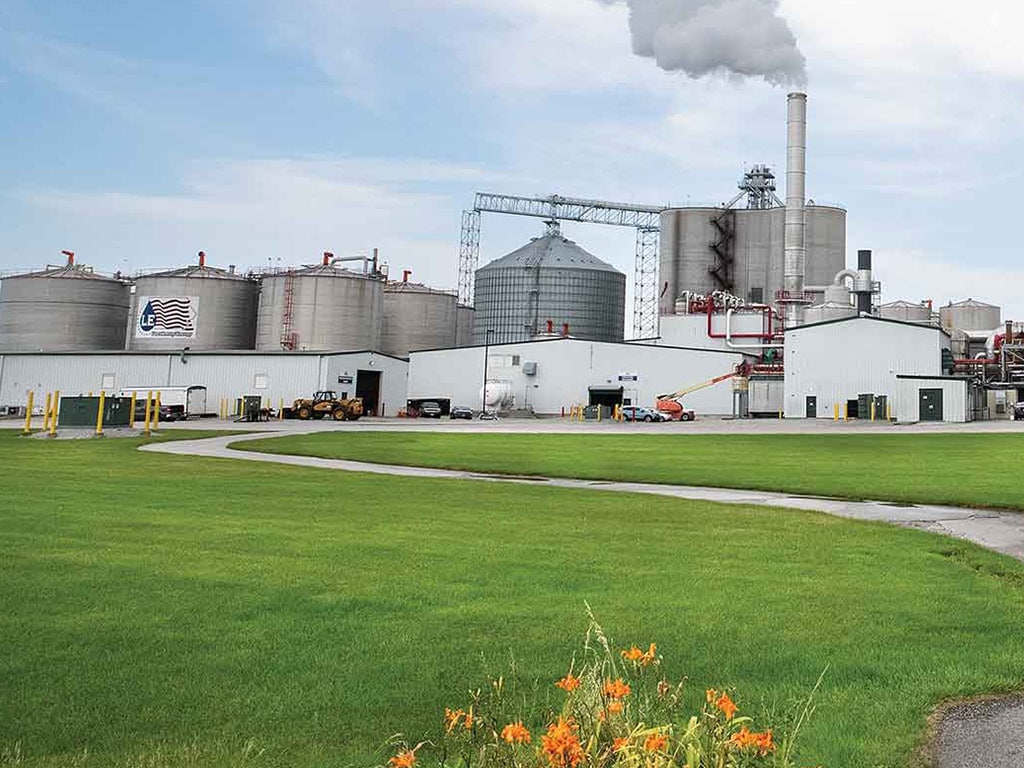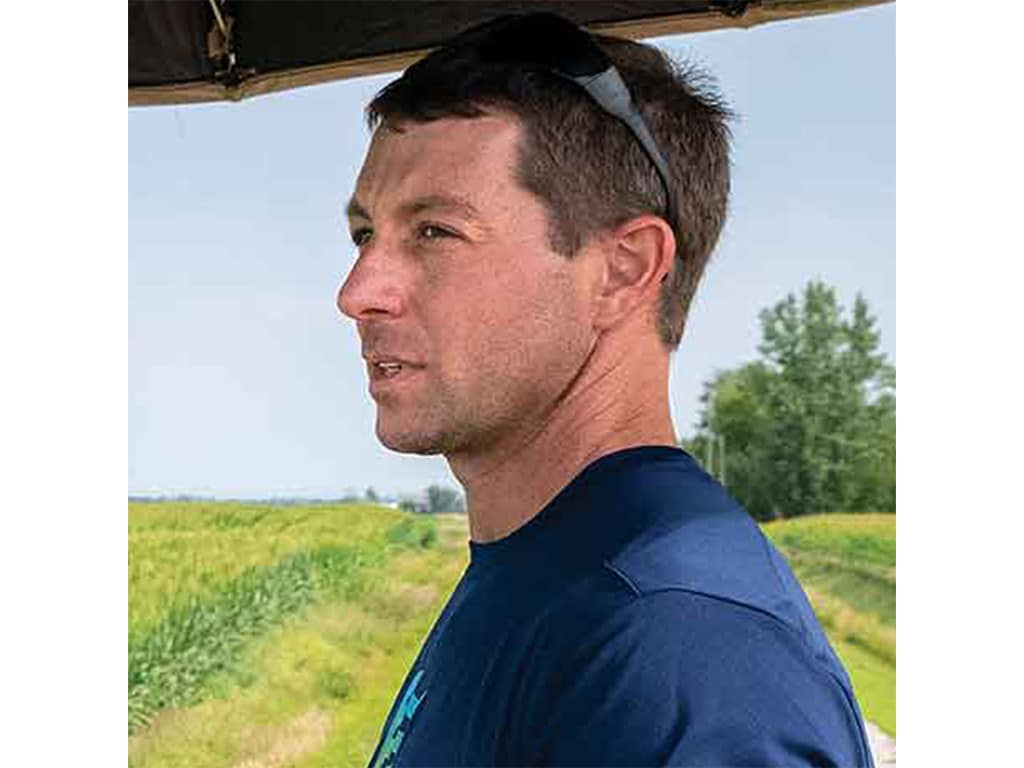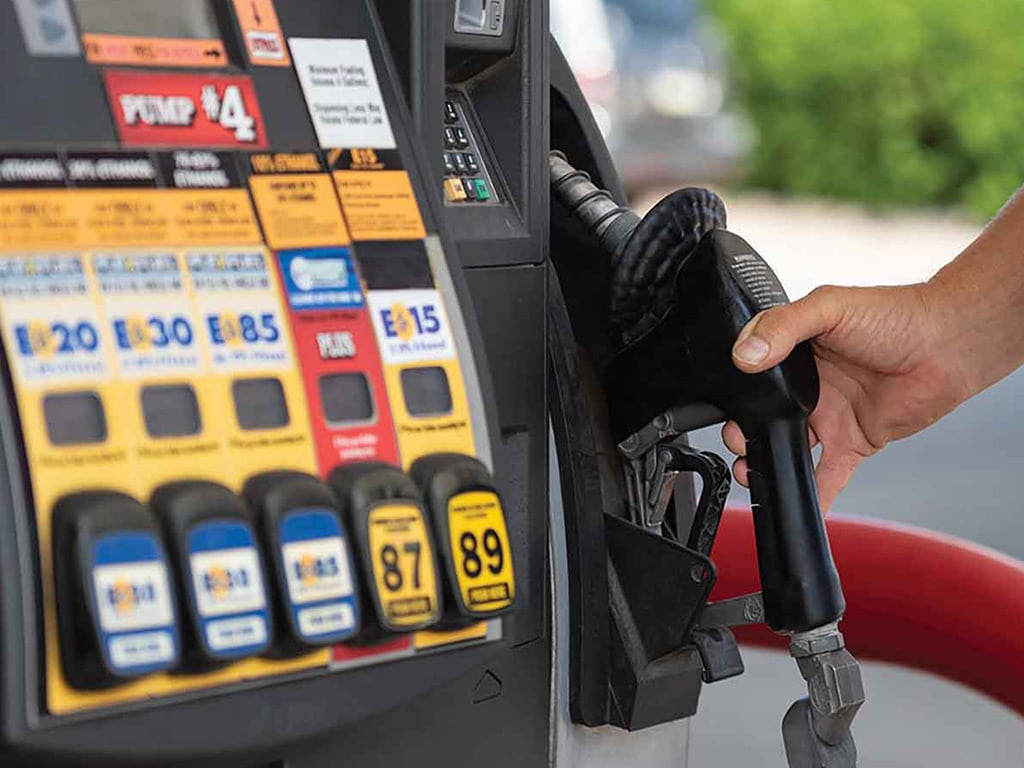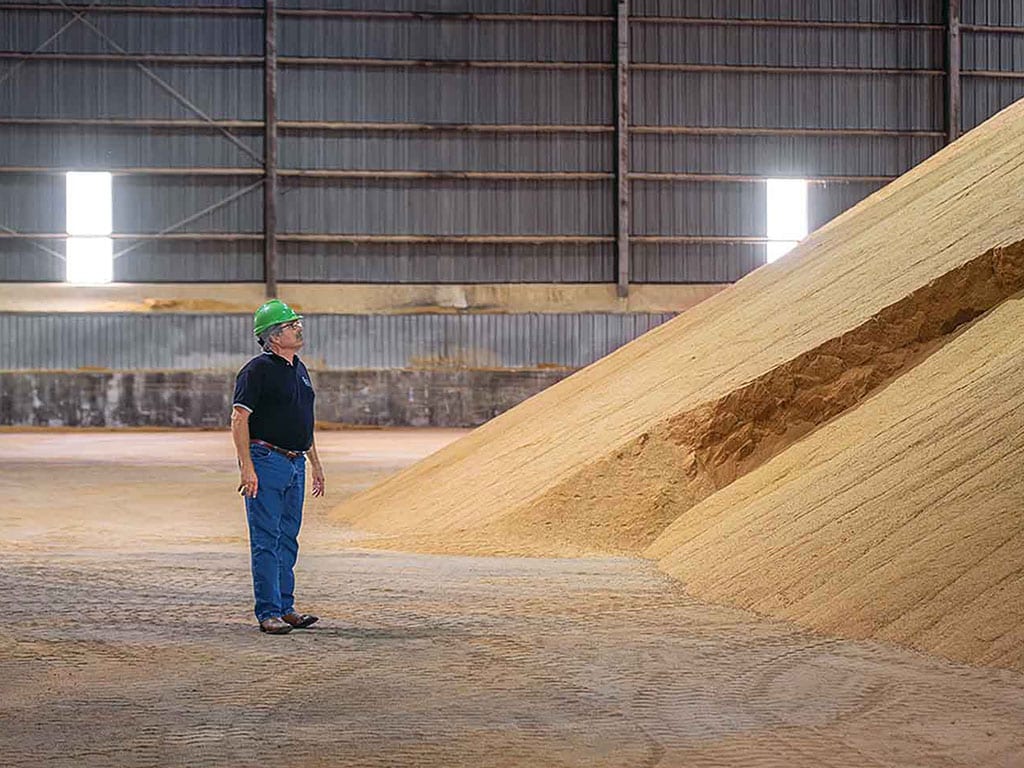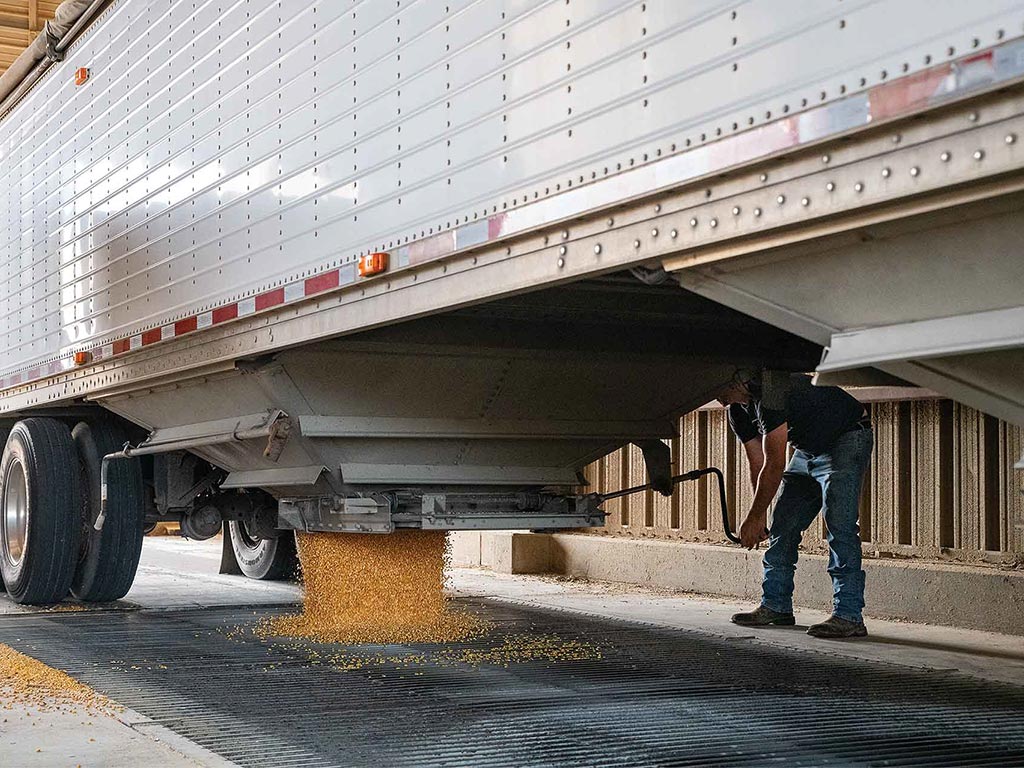Agriculture, Sustainability December 01, 2024
Farmers Fueling the Future: The Power of Speaking Up
How a late-night conversation changed things.
by Katie Knapp
"It all started 20 years ago when a few of us on the co-op board were sitting in a bar talking about how the corn we take to the elevator goes off and somebody else profits from processing it," says Bill Couser, grain and cattle farmer from Nevada, Iowa.
They all had survived farming in the 1980s somehow, and now corn was below $3.
"We had to do something," he says. Trepidation still rings through as he tells the story decades later.
They were determined to find an income stream that would bring money back to their farms and to their neighbors'. What they found was so much more.
Lincolnway Energy ethanol plant was funded in a matter of months with investments that came in $25,000 at a time.
"It was a groundswell. We figured out a way for the teachers and parts managers to invest in our community, and it has paid dividends. Everybody in our community benefits," Couser explains. Pride and ease return to his voice.
Gas station owner Charlie Good is proof positive.
Good, of Good & Quick Tire and Auto Service in Nevada, Iowa, started selling ethanol 11 years ago by chance because of a blender pump grant.
"Now I sell more ethanol than anyone around," he says matter-of-factly. "Area farmers get a piece of it, and we all have more to share with the schools, community organizations, fire departments…everybody wins."
Be at the table. Ethanol quickly became Couser's passion project. He has spent the last two decades advocating for the sector and educating policymakers on what renewable fuels, such as corn-based ethanol, do for crop and livestock farmers and the whole country.
"I really enjoy going to D.C. We finally have a seat at the table instead of being on the menu," he explains. "All it took was being willing to push myself just a little and be willing to share my expertise."
He knows he cannot control the commodity market, but speaking up as policies and regulations that will impact his farm are developed can make a difference.
What also helped Couser make headway on The Hill was bringing other community members along to share their perspectives, including Charlie Good.
"It's we. It's not I. There was a group of us," Couser says.
Above. Bill Couser has raised grain and cattle in central Iowa since the 1980s. When markets threatened his ability to farm again in the early 2000s, he and his neighbors built an ethanol plant. The benefits have been felt through the whole community, including Charlie Good's gas station with several ethanol blends customers seek. As the next cycle starts, Bill is turning the cattle reigns over to neighbor Drew Johnston and the crop controls to his son Tim Couser. Area farmers have been delivering approximately 35,000,000 bushels of corn annually to Lincolnway Energy. The plant processes corn into fuel-grade ethanol, distillers' grain and oil, and captures carbon dioxide gas.
Hope for the next cycle. As corn nears the $3 mark again, Couser has his eye on retirement.
Instead of trepidation, he is hopeful as he turns over the farm to the next generation because of ethanol's foundation.
In the early 2000s, America asked its farmers to help reduce dependence on foreign oil, and they answered with overproduction. The ask now is for the environment. Couser believes America's farmers are more than ready to be a solution.
Lincolnway Energy and Husker Ag CEO Seth Harder believes there is great opportunity coming within the global renewable fuel sector.
"It will be tough for ethanol to get more than 30% share of the U.S. liquid fuels market without cracking cellulose, but as the economy in third-world countries continue to develop and their people travel more, we are going to see continued growth for ethanol," he says. "EVs [electric vehicles] will remain an option, but ethanol provides a sustainable future for many people. The thing about ethanol is that it connects so many industries and lives together."
Some of Couser's hope comes from how climate-focused the next generation is.
"Tim, my son who is taking over the grain portion of the farm, is all about soil and water conservation," he says, knowing how much innovation and thoughtful management his son will bring to each acre in coming seasons.
"Whatever Qs and Rs and 45s and Zs policymakers set for renewable fuel standards, farmers like my son will keep reducing their carbon intensity (CI) score no matter what because it will benefit everyone," he adds.
Couser says the same thing about Drew Johnston, a young neighbor who is like family and taking over the cattle side of the operation. "These guys have it figured out. They know how to save pennies and produce more. My generation needs to let them do their thing."
What Couser is not ready to step back from is advocating. He knows prices will bounce back and young farmers like Tim and Drew will be okay, but he can still speak up for them.
He fondly remembers when his boys would spend all day in the tractor, smudging the windows with their tiny hands. "I want my future great-grandchildren to have the same opportunities, so I will keep going to D.C. to speak up for farmers." ‡
Read More

RURAL LIVING, SPECIALTY/NICHE
A Helping Hand
Gardeners share their skills with patients in garden therapy program.

RURAL LIVING, SPECIALTY/NICHE
A Fresh Palette
Creative family returns to farm life.



